The reparations continued to pour in, and the people set to work, tearing down their old, rotten decrepit houses, erecting newer, stronger ones, greater ones that rivaled mighty trees.
And here, still in her rags, but wrapped in a bolt of a deep, blue silk she found in a wagon, Rukhel stood before her god, on the same stone slab she gave birth to the son she now held and suckled in the dawn’s warming rays.
“Here,” began the old god, stretching his wings a bit, as Rukhel drew closer to his side, drawing a fold of the silk to shield her suckling baby from the piercing sunbeams and bathed the valley in a blazing gold, “is where we must part our ways, Rukhel.”
A sorrow welled inside Rukhel. Her time with her god was all too brief, she rued.
Aside from Chana, Rukhel had seldom formed so close a bond, so rich in its confidence. Even her husband shared nothing near what she forged with the old god in so short a time.
Never had anyone instilled in Rukhel the wisdom, strength and dignity as the god had. No one had consoled her as completely. Never had she trusted anyone fully. Her god had become her closest to heart, rivaled only by Chana.
Rukhel feared once her god left, she would lose her way as she forged the new land with her people. She feared losing her strength and wisdom as soon as the god flew off, for she wondered if these powers existed solely through his radiance. Would her own powers fade, like a flower dying if the sun vanished?
The old god knew all that wrestled in her mind.
He lowered his head near to her, letting her wrap one free arm over the crest of his neck. She pressed her face against his, as she did the night prior, when her greatest decision laid before her-now she faced her greatest consequence of her decision.
“Quell the troubles in your heart, Rukhel,” consoled the old god, as he felt Rukhel stifled down a cry, pressing her face closer against his.
“Must you leave us? Cannot you stay and remain with us? We would build you the greatest house, a temple fit for your greatness. Other gods have done this. I am only weak and selfish without you, my god! How can I lead without you?” Reasoned Rukhel.
“But I am not as other gods. I am not greedy for worship. Those other gods, their pride has turned them into stone, so hard they became in this avarice for adoration. But I am not to be stationed in one place, Rukhel.” He closed and opened his great eyes, looking directly at Rukhel against his face, her eye leveled at his own eye.
“And though the Law is cruel everywhere with every god obeying it as much as you mortals do, I have not left you alone- remember? I imparted my strength and wisdom unto you, but greater in measure is the own strength and wisdom you carry within yourself. For had it not been for your measures, would have I been awoken? You would have become the Leader of your people, Rukhel?” the old god reasoned.
Pulling back, Rukhel rested her hand on his scaled cheek, looking pleadingly at him. She opened her mouth, but closed again. He spoke the truth, as much she desired it not.
But he added, “And you have Chana- let her govern you in temperance and understanding, just as the moon governs the sun, Rukhel.”
“I will, my god.” affirmed Rukhel. In her boldness, she placed a kiss where her hand rested.
“But how can I thank you? I shall not forget you, my god, but how can I make the people remember you?”
The old god nodded. “Mark this day well, Rukhel. On this day, every year, hold a feast in my honor. A feast of joy, reflection and celebration. On this day too, make the people remember to look with themselves and seek the measure of greatness and courage you found last night. In this, they too may grow great by their own measures, and in turn, this greatness will exalt all in union of the people.”
“So shall it be done, my god.” Rukhel vowed.
“I will not leave you yet, Rukhel.” He rose his head and pointed with his chin at the winding procession of the wagons bearing the oppressors’ due of wealth and riches.
“For a fortnight, shall I guard over the reparations, standing as sentinel. I shall stand and remind them to pay their share. Under the lash of my threat, they will keep their word, for they have no desire to elicit my wrath revisiting their cities again.”
Rukhel turned her thought onto the mother and her children she saw last night. Were they rebuilding their home from the ashes? Did they eat the bread of sorrow now? Such was the price of vengeance, Rukhel reflected in rue.
The god knew this, for he added, “If they keep their word, I shall not reign down my wrath again, Rukhel. Never fear.”
Rukhel nodded.
“One last sign-” and here, he opened one hand and in his palm shone two scales of his. They gleamed in the sun that it would blind most, but Rukhel’s eyes grew accustomed to this brilliance. “Take them, polish and fashioned these into a ring for you- and set the other into a linked chain for your son-” and here, the god gave the babe, now suckled and swaddled still in the shawl of fire, a knowing nod, “-so that he might keep well where his people regained their greatness.”
Rukhel clutched the scales in her hand in reverence and nodded. Tears spilled and her throat tightened with sorrow.
“And now, we depart. Keep well, Rukhel, brave daughter of this Valley. It is growing blue again!”
Rukhel found her voice- “You will be remembered, my god!”
And in a smaller voice she knew he would hear and keep in his heart, Rukhel uttered,
“Thank you.”
A season passed. The village in the Barren Valley was no more- a great city, walled in oak carved and rooted deep within the earth, stood in its place. The withered fields of the valley became blue, a rich, dewy blue yielding much succulent grass, fruit and grain. The river expanded into a flowing delta, circling the mighty walled city, like a moat, churning its clear waters that teemed with healthy sturgeon and trout.
The cobbles and mud became tiles of their colors- blues, whites, golds and silvers.
Where her small, hay-thatched home was, now erected was a fine fortress of a palace- mighty walls and parpets framed it.
One dawn, very much like the dawn where the old god left her the leader, Rukhel, now Queen Rukhel, reflected her seat of governance before she settled her baby in his cradle. It was a finely carved craft, filigreed and gold etched the fretwork. Soft satin lined the bed of it, and here, she laid him. Zhuel remained small. He struggled with suckling at times. He was quiet, giving his usual raspy cry at times. But his eyes opened before their time due, like usual babes. And his eyes were serious- they were dark, but shone with a sharp clarity, and his face conveyed he understood what happened around him.
Rukhel took this sign with relief, pride, and a piercing of sorrow. She knew well the prophecy was forming. But she vowed she would forge her son’s destiny that he met his second destiny, not his first. She would give up her joys of motherhood, she knew, when he reached the age of accountability. But so be it, Rukhel pledged.
Better her own joys be exchanged for her son’s life and happiness.
So she let her son wrap his hand around her finger. Rukhel examined her hand and her son’s. A time before, her hand had no rings on them, as they did now, especially Rukhel noted the ring containing her god’s gift. But her scars, fine white lines remained on her hand, as did the callouses from her years of washing in cold water and the stinging lye. She welcomed these as reminders of her trials, what the cost of earning this greatness now.
Leaning into the cradle’s half-tester, she softly kissed her son’s forehead, watching him close those sharp eyes into a peaceful lull of sleep.
Rukhel heard a distant murmuring, and she left, heading to the council hall to meet with her people for their new governance.
As she passed one large, open arch of the hallway, she saw the stone slab in the street, now polished and enameled in red lacquer and set with crystal, marking where her birth took place.
A mix of joy and solemnity filled her as she entered through the looming door and met her council.
And thus, a washerwoman became a queen.

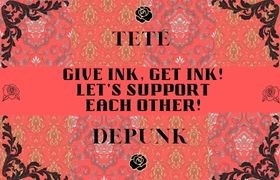
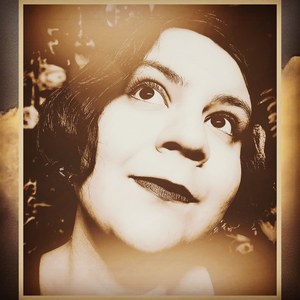
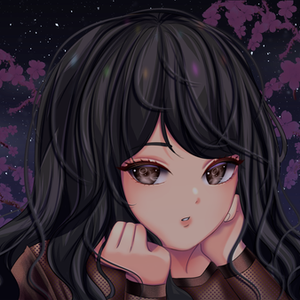







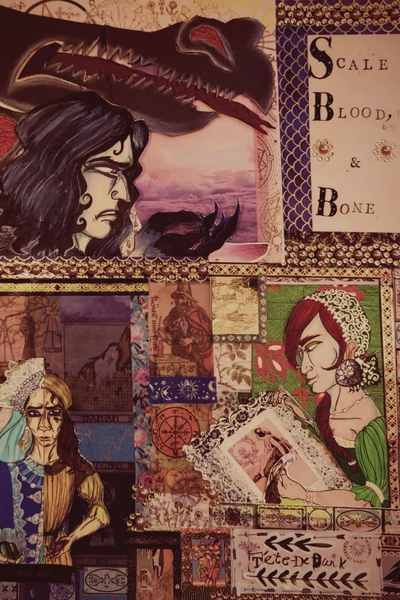
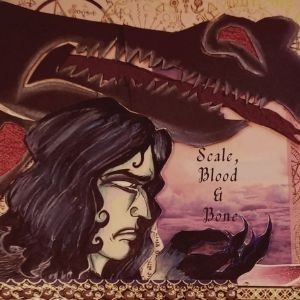
Comments (9)
See all